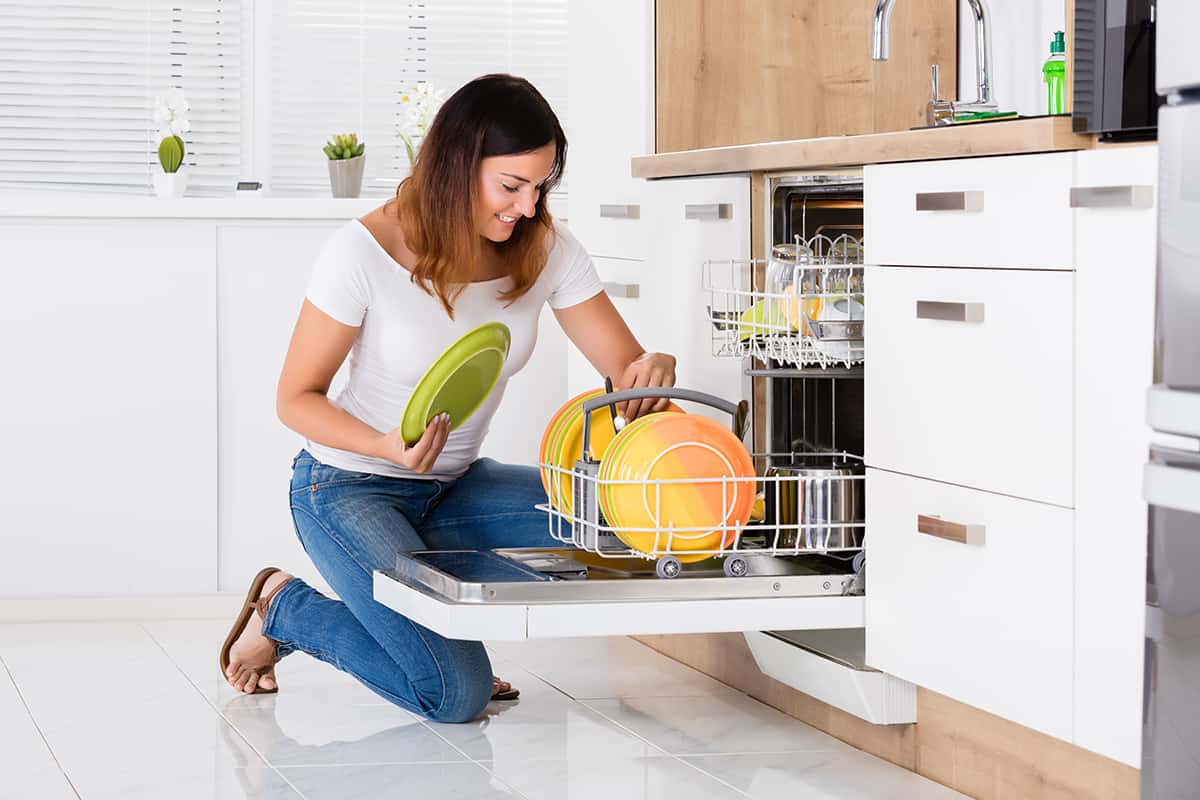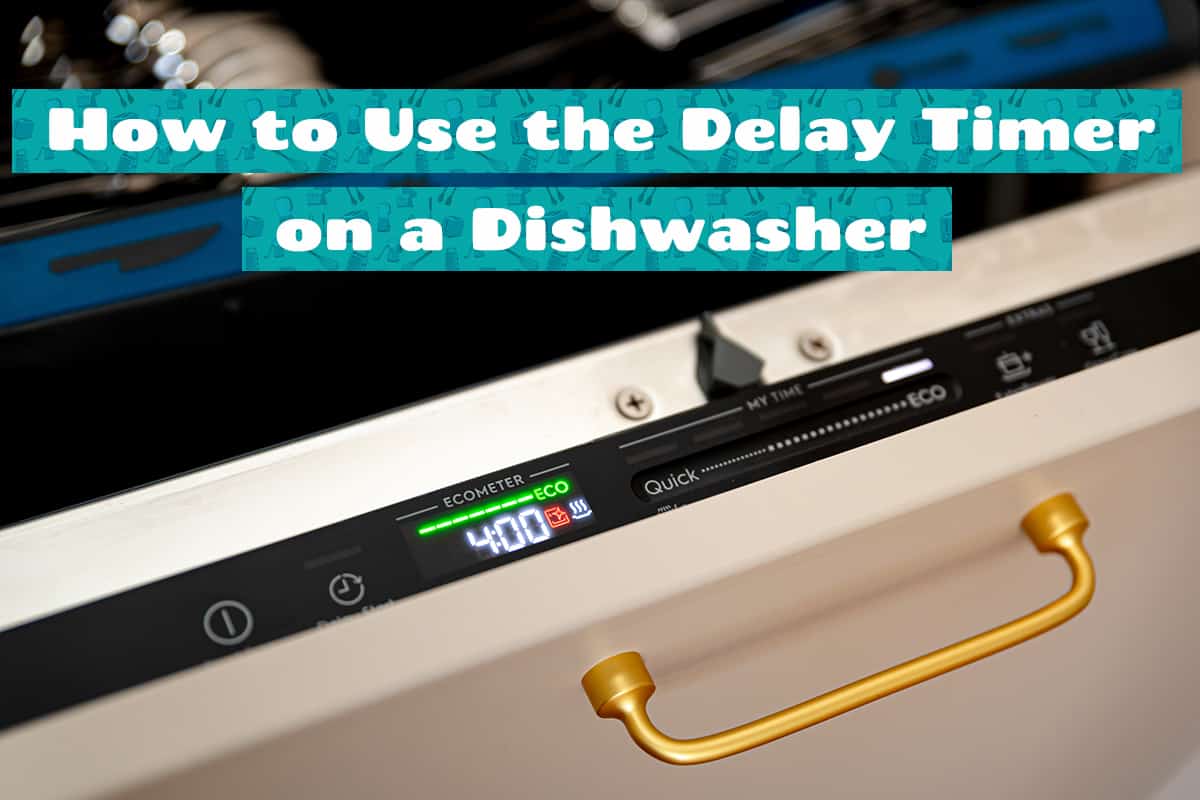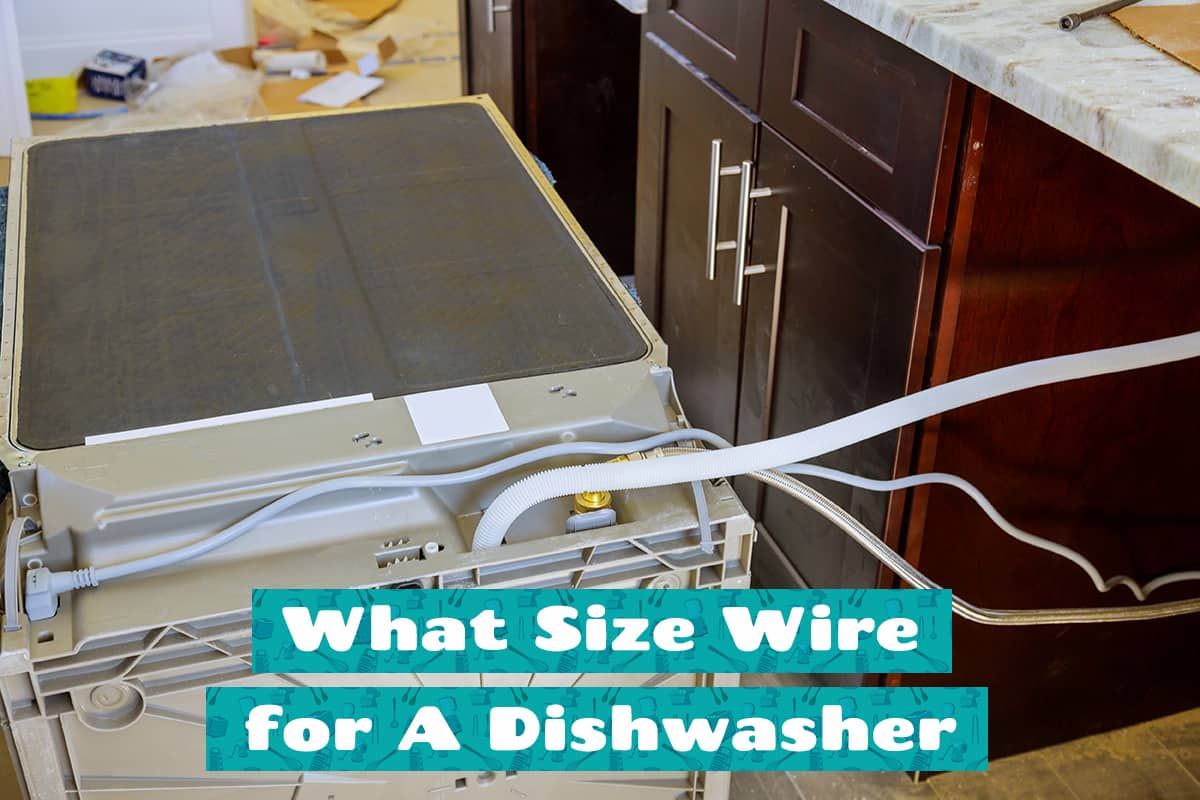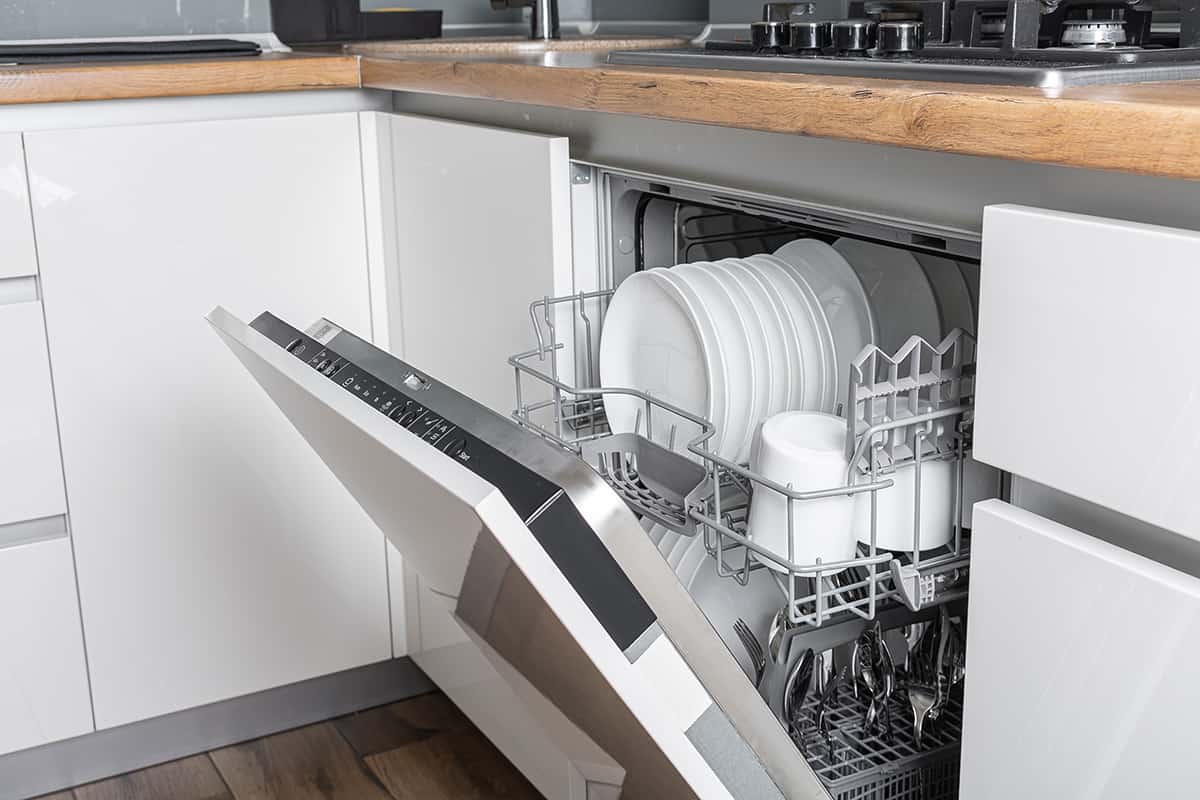If this is your first time owning a dishwasher, welcome to the dishwasher club. You’ll soon realize that it’s just another kitchen appliance, even though it does make dishwashing a breeze. But the question you’re probably wondering yourself is, is it ok to run your dishwasher every day?
Yes, you can, but you should understand the risks of running your dishwasher more than necessary. On average, you only need to run your dishwasher 5 times a week.
In this guide, I’ll explain why you shouldn’t run your dishwasher every day of the week, and I’ll describe ways to increase your dishwasher’s longevity.
Is It OK to Use a Dishwasher Every Day?
Everyday use can shorten a dishwasher’s lifespan due to the excessive wear and tear it places on the appliance’s internal components. Constant contact with water, heat, and detergent can accelerate the deterioration of dishwasher components over time, necessitating more frequent appliance replacements or more expensive repairs. Furthermore, daily use of a dishwasher can result in higher energy and water bills due to the increased frequency of use.
So, if you shouldn’t run your dishwasher every day, how often should you use your dishwasher?
Dishwashers should be used no more than 5 times a week. This gives the machine dishwasher more time to dry and cool down between uses, reducing the risk of mold growth and extending the lifespan of the internal components. It can be more water- and energy-efficient to run the dishwasher less frequently and after accumulating larger loads of dishes.
So, if you have a few dirty dishes at the end of the day, you should consider washing them by hand. Alternatively, you can leave dirty dishes inside your dishwasher and run a wash cycle after the racks are completely full.
How Long Can You Leave Dirty Dishes in a Dishwasher?
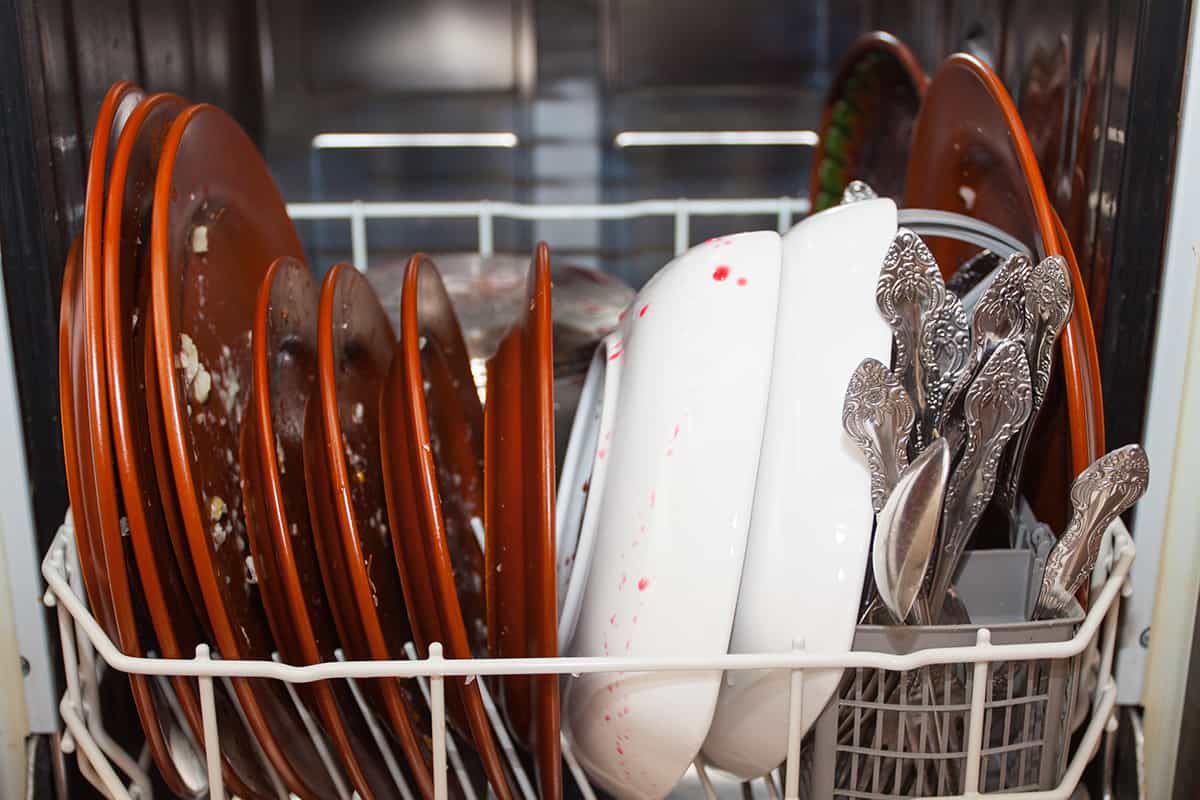
So far, we’ve learned that you should only run your dishwasher 5 times at most per week and that you can leave dirty dishes inside the dishwasher between wash cycles. So, how long can you leave dirty dishes sitting inside the dishwasher?
It’s not a good idea to let dirty dishes sit in the dishwasher for a long time. The growth of bacteria and mold, as well as unpleasant odors, can result from leaving dirty dishes in a dishwasher for more than a day or 2. Not only that, but dishes that have been in the dishwasher for too long may become stuck to the appliance’s interior and require more effort to remove.
Clean dishes, however, is a completely different story. Read this guide to learn how long you leave clean dishes in your dishwasher.
How to Extend the Lifespan of Your Dishwasher
The entire purpose of not running a dishwasher every day is to improve its longevity. On average, a dishwasher should last for between 8 and 10 years, but with proper care, you can push it to 12 or even 15 years after the purchase date.
Here are a few tips on how to extend your dishwasher’s lifespan.
1. Practice proper loading techniques
If you want your dishwasher to do its job properly, you need to load it correctly. Here are a few ways to practice proper loading:
- Arrange the dishes, so they do not touch or overlap, allowing water and detergent to reach all surfaces.
- Placing larger items on the bottom and smaller ones on the top ensures that the dishwasher’s spray arm can reach all surfaces of the dishes.
- Follow the owner’s manual on where each dish type (plates, bowls, pots, cutlery) belongs.
- Remove the largest bits of grime and debris from the dishes before loading them into the racks.
2. Maintain a regular cleaning and maintenance schedule
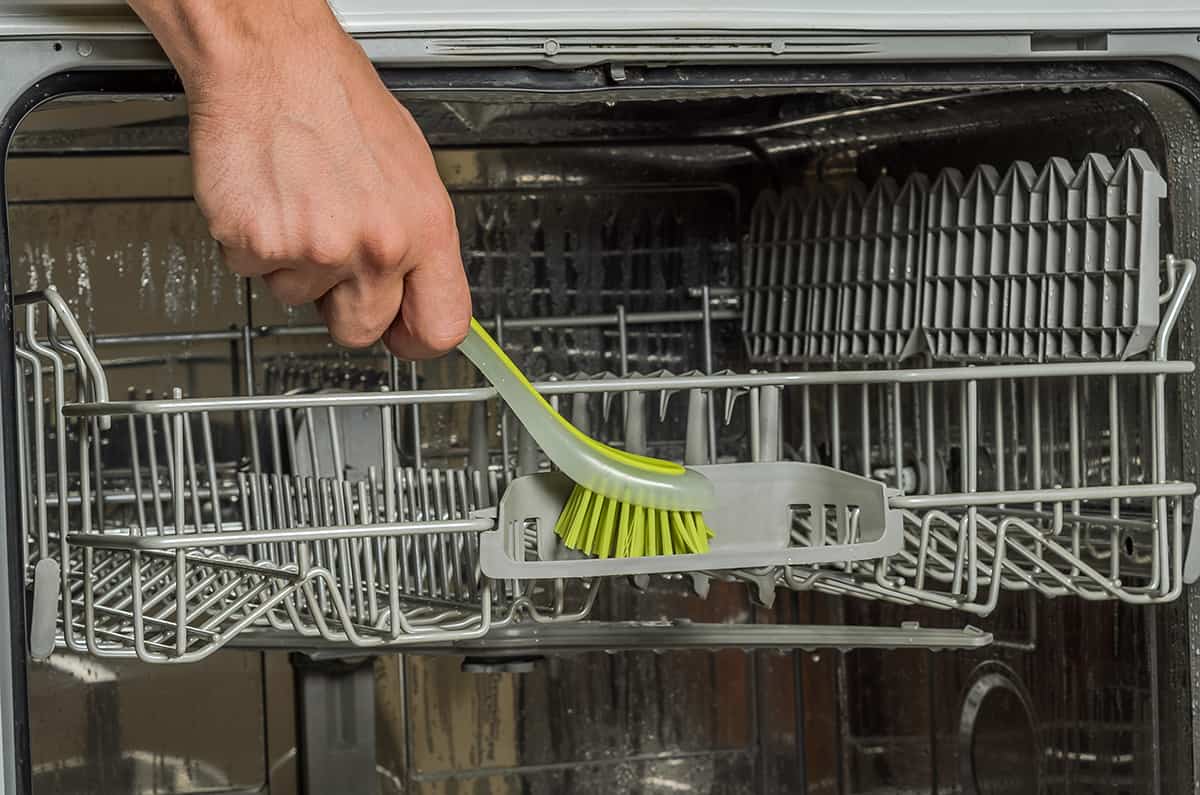

If you want your dishwasher to serve you well and last as long as possible, you should clean and maintain it on a regular basis. Parts of a cleaning and maintenance routine are as follows:
- Clean the dishwasher in and out—You can wipe the inside of the dishwasher down with a wet cloth or use a dedicated cleaner to get rid of any food debris or buildup that may have occurred. This will keep the dishwasher smelling clean and fresh while also preventing the growth of mold and bacteria.
- Clean the filter and spray arms—You should clean the dishwasher’s filters and spray arms regularly to prevent clogging. This will allow the water and detergent to move around more freely, leading to a more thorough cleaning of the dishes.
- Check the machine for leaks—Look for water on the floor or inside the dishwasher as indications of a leak. Immediately correct any leakage problems.
- Inspect the gasket—The plastic or silicone gasket should be completely free of solid residue and moisture. Use a damp cloth to clean the gasket after each use.
- Get a dishwasher professional inspected—If you come across any problems that you can’t resolve on your own, you should reach out to a trained professional.
Alternatively, you can follow this dishwasher maintenance checklist to ensure your dishwasher is in tip-top shape.
3. Use the right kind of detergent
There are several types of dishwasher detergents available, including:
- Powder—This type of detergent, which comes in both standard and high-efficiency varieties, is the standard detergent.
- Gel—This is similar to powder detergents, but it comes in a gel form. It is often more expensive than powder detergents.
- Tablet or pod—These detergent tablets are pre-measured and dissolve in the dishwasher as the cycle runs. Though they’re more practical than powder or gel detergents, they are considerably more expensive.
Check the dishwasher’s manual to see which type of detergent you should use. If it doesn’t come with a separate tablet or pod compartment, you should stick to using powder or gel dishwasher detergent.
4. Choose the most appropriate wash cycle
If you look at the control board of your dishwasher, you’ll notice that it comes with multiple wash options or modes. Take a look at the owner’s manual to figure out what each mode has to offer in terms of water temperature and cleaning times.
For instance, delicate mode, which uses colder water than normal or sanitize mode, is ideal for cleaning crystal and fine china. On the other hand, if your dishwasher is only partially loaded, you should probably switch to quick or energy-saver wash modes.
5. Run your dishwasher when it’s fully loaded
Even though you can run your dishwasher on half a load, it’s not recommended. Although the dishwasher won’t use as much detergent, water, or electricity to wash fewer place settings, the internal components will still operate at full capacity, which can cause them to wear down at the same rate as running a regular wash cycle.
How Long Can You Leave a Dishwasher Unused?
From this guide, you may think that not running your dishwasher at all is the preferable option, but this simply isn’t true. First and foremost, dishwashers are a lot more efficient than washing dishes by hand in the sink. So, using your dishwasher will actually save on water over the long run.
Not running your dishwasher at all can be dangerous since many of its internal components rely on moisture to function optimally. At most, it can spend 2 weeks in storage or unused. After that, the gasket can dry out and crack, which is the least of your worries!
